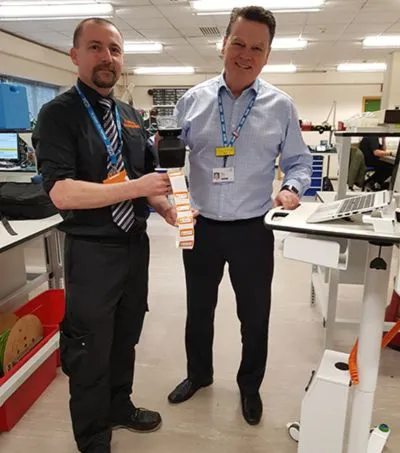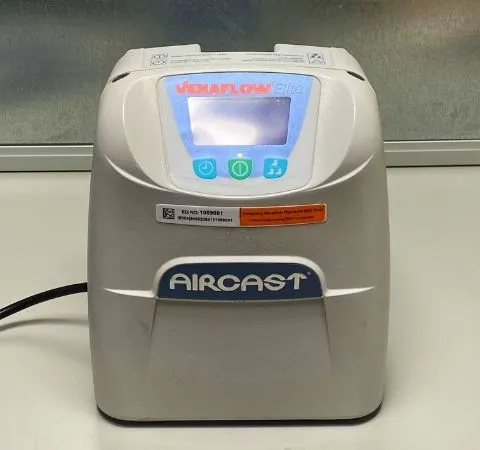Plymouth NHS Trust selects RFiD Discovery for medical asset tracking
University Hospitals Plymouth NHS Trust (UHP) has selected an RFiD Discovery system to track a total of 60,000 assets including medical devices and surgical kits in its 900-bed Derriford Hospital.
The key aims of the project are to improve asset utilisation, reduce the time spent by staff looking for equipment and improve patient safety in line with the NHS Scan4Safety initiative.
UHP is one of six NHS acute Trusts awarded Scan4Safety accreditation by the Department of Health and Social Care demonstrating significant operational efficiencies, cost savings, reduced errors and improved patient safety achieved through the adoption of GS1 standards.
Once implemented with a total of 62 fixed readers, 12 mobile readers and 60,000 passive RFID tags, this RFiD Discovery asset tracking system is set to be the largest GS1 compliant implementation of its type in any NHS Trust in the UK.

Nick Thomas, Deputy Chief Exec and Steve Bond, Principal Technologist in Clinical Engineering at Plymouth NHS.
How does it work?
Over the next few months the Clinical Engineering & Sterilisation and Disinfection Unit (SDU) teams at UHP will be replacing existing asset labels on medical devices and surgical instrument trays with passive RFID tags, which carry a Global Individual Asset Identifier (GIAI). Each tag is encoded with a unique ID which is linked to a particular asset in the database on registration.

Different types of passive RFID readers will capture data from the tags and send location information to the central RFiD Discovery database, which can then be interrogated by all clinical and engineering staff to locate assets.
Fixed readers will initially be mounted in key areas with high numbers of equipment moves such as A&E, ICU and SDU as well as the main ward areas to automatically detect tags in these areas. This will expand to other areas in the Trust during later phases of the implementation.
In addition, two specially designed trolleys fitted with powerful UHF RFID readers will perform equipment searches as they are pushed around the hospital. Mobile handheld readers will also be used to audit wards or locate specific equipment.
What are the benefits?
Sandie Wills, Scan4Safety Project Manager at UHP, commented:
“By pinpointing the location of our medical equipment, the RFiD Discovery system will drastically reduce the time our clinical and engineering staff spend looking for devices, and enable them to focus on their core tasks of patient care and equipment maintenance.
“The location data will also provide visibility of the movements and stock levels of our sterilisation trays to improve the inventory management in our SDU.”
Simon Dawkins, Senior RFID Consultant at RFiD Discovery said:
“We are delighted to be working with the Scan4Safety team at University Hospitals Plymouth NHS Trust to implement a track and trace solution of this scale across the areas of Clinical Engineering and Sterile Services to help the Trust improve efficiency as well as patient safety.”

